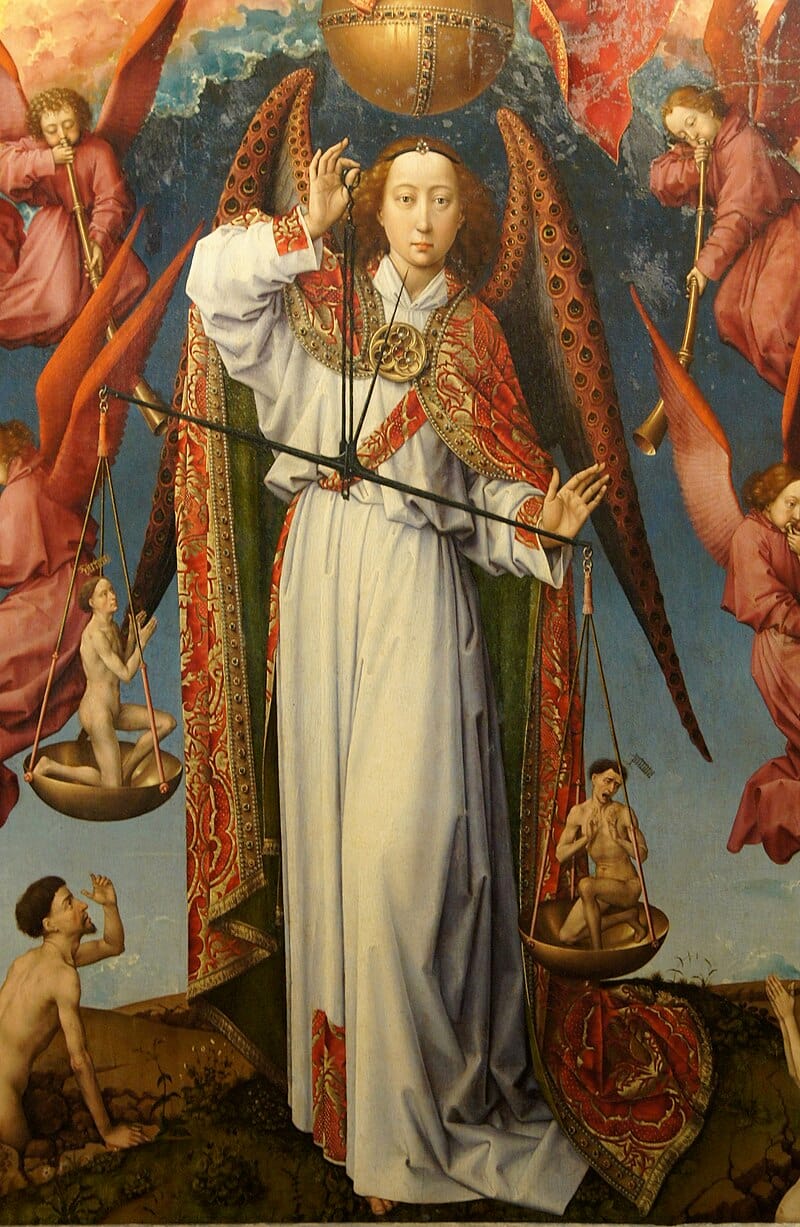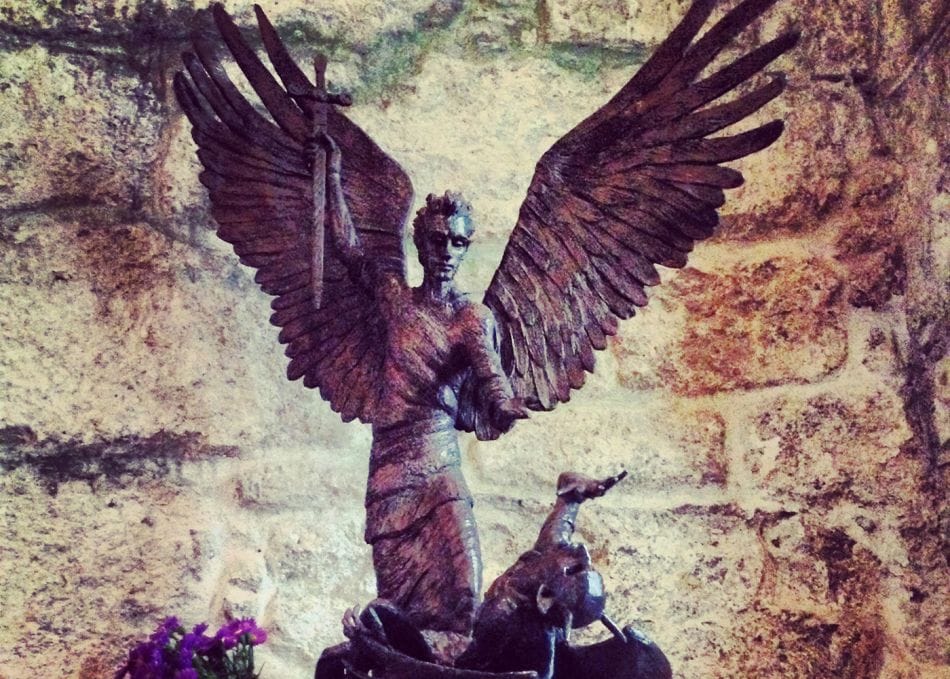Keep Us Safe in All Our Ways

Angels, like Christmas, are a part of our tradition that the secular world has found commercially useful. This causes us trouble because, unlike Christmas, most churches don't spend a great deal of time teaching about angels. This leads to confusion, scepticism, and embarrassment when the subject comes up in more than a passing comment. I can't possibly tell you everything there is to know about angels in one evening—I'd have to be a much better-informed man to start—but I hope to persuade you that statuettes of wingèd, doe-eyed children in nightgowns have as little to do with our angels as cola and polar bears have to do with our Christmas.
We know that St Michael and all of the angels are very important in the Anglican tradition. If they were not, tonight would be Second Evensong of Sunday, rather than First Evensong of St Michael's Day (Michaelmas, or Michael's Mass). You've got to be pretty important to bump Sunday on the schedule. Some of this importance is English culture and tradition. Michaelmas marks the symbolic end of harvest, end of summer, and the beginning of the fall school term. It's a great moment to have a big celebration and Michaelmas is a convenient time in the church's calendar. But there is a little more to it than convenience and happenstance.
Angels appear throughout the Bible and even more often in the extrabiblical stories of our tradition. Some angels have names, like Gabriel, Raphael, and Michael, who we'll return to in a moment. Regardless of the reasons for their appearance, we are reminded over and over that the first purpose of angels is to offer constant praise to God in heaven. In fact, the way our choir is seated and the antiphonal singing they sometimes do is meant to mimic the angelic worship of God in heaven. We also recall their song at each celebration of Holy Eucharist when we sing "Holy, holy, holy." (Isaiah 6:1-3)
When humans and angels meet, it is almost always either because the angels have a task from God to perform, or because they come bearing news. We know that angelic encounters are off-putting because nearly every one of them begins with "Do not be afraid." Far from harp-playing humans, angels are powerful creatures, quite unlike you and I. There are some truly frightening descriptions of angels and you may be familiar with the "biblically accurate angel" memes that make their way through social media from time to time.
Angels are, at different times, sent by God to save people from danger (2 Kings 6:8-17), to punish the wicked and warn the innocent of danger (Genesis 19:1-13), deliver messages (Luke 1:5-38), they are present when God creates the world we inhabit (Job 38:1-7), and they will be present at Christ's return (Mark 13:21-27). Angels have often been interpreted as two-way messengers. In many pieces of art and writing, they are seen to be moving back and forth between heaven and earth, carrying the prayers and offerings of humanity to God's throne in heaven. This angelic duty is even noted in the eucharistic prayer of the Book of Common Prayer of 1549:
And although we be unworthy (through our manyfolde synnes) to offre unto thee any Sacryfice: Yet we beseche thee to accepte thys our bounden duetie and service, and commaunde these our prayers and supplicacions, by the Ministery of thy holy Angels, to be brought up into thy holy Tabernacle before the syght of thy dyvine majestie; not waiyng our merites, but pardonyng our offences...
"Not weighing our merits, but pardoning our offences" is an image that brings us back to Michael, for whom this great feast day is named. As early as the second century, there are depictions of Michael holding a set of scales on which the souls of humanity are weighed in the final judgement at the second coming.

Most famously, Michael and the angels have waged war in heaven (Revelation 12:7-12). According to the Revelation, a war breaks out in heaven and it is Michael who leads the angels into battle against the dragon. They are victorious and the dragon is cast down to earth. Michael's name means "Who is like God?" and we can imagine the force of that question posed to one who has just attempted to depose God from the heavenly throne. This victory in warfare is why Michael, along with St George who slayed another dragon, is a patron of soldiers.
Many paintings and statues of Michael, including our own at St John's, show him in a victorious pose, his foot on the dragon's neck, and a sword or spear pointed at the defeated villain who writhes in agony. However, there is at least one depiction of this scene that takes a different, much more interesting tack. Michael is victorious, but the cross is held up, one hand on the blade below the hilt so that it is seen as a cross. His other hand is extended with the palm up, ready to help his enemy back to his feet. The devil's agony is his unwillingness to humble himself, admit his sin, and receive grace and redemption. God does not desire the death of the sinner (Ezekiel 18:23) but always longs for their repentance and loving reconciliation.

Angels of the Christian sort are unpopular these days. Modern scientists and philosophers don't have ways to measure them and they don't neatly fit into the categories we have designed for the rest of God's creation. But our tradition fervently attests that they are not only real, but present and active in our midst at God's behest.
Angels are a challenge to our certainty that we have achieved mastery over the world around us. They are a reminder that our faith calls us to acknowledge all that God has made, "visible and invisible". We trust that, in God's own time, all things are working together for good (Romans 8:28) and that we may, once or twice in this life, know the work of an angel sent to guard us in all our ways. (Psalm 91:11-12)



